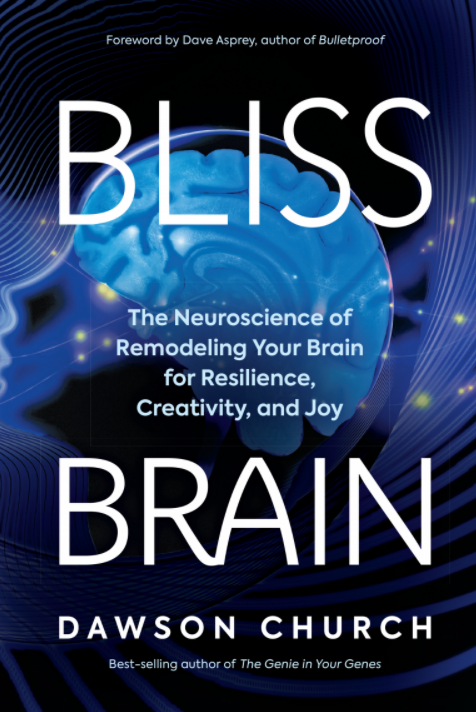Should You Suppress Your Feelings?
What to Do With Your Emotions
Should you suppress your feelings? We've all asked ourselves this question at one point or another. We are triggered by a situation that makes us irate or even depressed. You lose it. You break down and let it rip – unloading your feelings and perhaps leaving those in your presence heading for the exits. The room looks like the tornado scene from the Wizard of Oz.
|
Should you suppress your feelings? Often times, we suppress our emotions, which is a bad idea. If we choose to hold everything inside, it can lead to mental and physical health problems – even drug and alcohol abuse. Perhaps even physical abuse. |
I’ve had some of my best meltdowns in my truck. I would put on my mobile phone headset (stop laughing, it was a different time) and start screaming into it. The headset allowed me to unload whatever was troubling me without fellow drivers thinking I was talking to myself – it made me look like a backup singer for 98 Degrees.
I’m not saying it’s okay to fly off the handle and have an angry outburst in front of your loved ones – it is okay to do so in private! Just don’t break anything. It sucks having to go back and patch walls. You feel shame.
There is a time and place for everything, including expressing one’s emotions. It’s probably not the best idea to shout in the middle of a busy location. In this day and age, people could mistake your actions when doing this and call the men in white. Strait jackets are no fun.
Unfortunately, many people are taught to suppress emotions by their parents and grandparents. These generations were taught to do the same and felt it was a true sign of character to be able to keep your emotions in check. I may be going out on a limb, but following this practice may have contributed to them having shorter lifespans.
Some people still adhere to the old ways of not expressing emotions. Expressing emotions may be seen as a sign of weakness or a form of complaining. This is clearly a shortsighted view.
There are many healthy ways to let off some steam. Some people will play sports while others will work out at the gym or train in the martial arts. Heck, they even have “Rage Rooms!” However, hypnotherapy and meditation are more tranquil ways of reducing your stress.
Sometimes all you need is to talk to someone about what you are feeling. You are letting your guard down when you do this so make sure you find someone you can trust. I would rely on my wife or my therapist to address this issue.
Should you suppress your feelings? Absolutely not. Consider the following recommendations for expressing your feelings:
· Don’t react if you find yourself in a challenging situation. If possible, remove yourself from that environment and decompress. Breathe.
· Don’t let it stew for too long. The sooner you express your feelings effectively, the faster you can address the problem.
· But, give yourself some time to write out your feelings so that you can express them clearly.
· Consider seeking the help of a therapist.
· Think about the positives of expressing your feelings.
· Look into Melissa’s hypnotherapy recordings to help strengthen your efforts.
It is not worth losing sleep or getting sick because you aren’t willing to express yourself. I’ve been in this situation where I let things fester. I ended up exploding in anger as a result. Should you suppress your feelings? No! You deserve peace of mind. The benefits of letting it out will lead you to a better life. ~Ted
Should You Suppress Your Feelings?:
Regulate Instead of Suppress ~parts adapted via Greatergood.Berkeley.edu
When it comes to regulating difficult emotions, there are two ways most people respond: They act out or they suppress.
If you act out with a strong emotion like anger, you will most likely create undesirable consequences in your relationships, your work, and even your play. The ripple effects of acting out usually provoke more anger around you, which leads to more difficulty. The consequences of suppressing those big emotions can be even more dangerous.
What many people aren’t aware of is that there’s another way to regulate our emotions: Feel the feeling in real time.
On one level, emotions are like energy waves, varying in shape and intensity, just like ocean waves. Their nature is to arise and pass away pretty quickly, like all natural phenomena. If you attempt to interrupt this process, through acting out or suppressing, several things can happen.
Tragically (and ironically), efforts to “talk yourself out of your emotions” often result in “increased rumination and perseveration.” In other words, you will keep thinking about and holding onto those emotions you’re trying to avoid. Anyone who’s had a deep-tissue massage has empirical evidence for how the body holds suppressed feelings. Suppression gets held in the body and creates a host of downstream effects, including anxiety, depression, stress-related illness, all the way to substance abuse and suicide.
Should You Suppress Your Feelings?:
No! Become an Investigator of Your Emotions
|
Research into emotional regulation suggests that mindfulness-based interventions, such as meditation, hypnosis, and EFT tapping can be helpful. I have had the privilege of teaching hypnosis and tapping techniques to physicians, police officers and elite military (Joint Special Operations Command). In each setting, these highly trained professionals are explicitly instructed to either suppress, deny, or compartmentalize their challenging emotions in order to function effectively in high-stress jobs - jobs that involve significant exposure to the kinds of suffering likely to trigger strong emotions. In fact, participants often reported with pride their ability to completely “turn off” their feelings either at work or at home. |
At the same time, these professions report some of the highest incidences of both suicide and substance abuse. Although correlation doesn’t imply causation, it is interesting to note that these specific populations, whose jobs involve acute exposure to difficult emotions, and who have been generally taught to deal with emotions by suppressing them, demonstrate such high degrees of clinical distress.
I've encountered boatloads of skepticism and resistance when I suggest to these highly trained, high-stress professionals that they “just feel their emotions in real time.” There was no way to convince them, other than to invite them to test it out in the “laboratory” of their own lives. Anecdotally, reports from Green Berets, veteran police detectives, and neurosurgeons included better sleep, increased job satisfaction, closer connections to colleagues, reduced headaches, and, most surprisingly to them, improved job performance.
So, should you suppress your feelings? No! I have found that EFT tapping offers a very "active" protocol, which can be inviting for people who don't think they can "be still" and practice hypnosis or meditation. In my opinion, EFT tapping is a form of self-hypnosis that helps you become an investigator, an explorer, of your emotions. Whatever comes out, comes out, and it can be surprising at times. Tapping gives you a positive release valve for harmful emotions. Try EFT tapping for yourself>>>
Should you Suppress your Feelings? NO! Do Other Amazing Stuff

